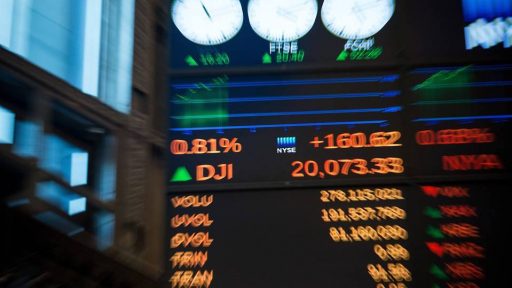- Home
- >
- Daily Accents
- >
- DOW hits 20 000. What Does It Mean and Where Does It Go?

DOW hits 20 000. What Does It Mean and Where Does It Go?

With the Dow Jones industrials above 20,000, it's natural to ask what's going on and what, if anything, investors should do. Here are some answers to common questions that people have about the stock market.
Q. Can the stock market keep going higher?
A. The Dow has more than tripled from its low point during the recession seven years ago. Some experts have been surprised the market has continued to rise so much in recent months, particularly since corporate profits have been mostly shrinking over the last year and a half, but that doesn't mean the market can't go any higher. The market is now in the second-longest bull run since World War II, following the rally of 1990-2002.
The election of Donald Trump in November has made investors more optimistic about growth in the economy and the profit potential for industries like banking and energy, which are expected to benefit from his drive to roll back regulations, lower taxes and rev up economic growth.
Q. If the market keeps setting record highs, does that mean stocks are getting expensive?
A. By some measures, yes. The long drive up in the market has sent a key barometer of how expensive stocks are above its long-term average.
A stock's price is meant to reflect how much investors expect a company to earn in profits. If those profits grow, you'd expect the stock to rise. Sometimes, though, stock prices rise even if earnings don't, and that's when stocks start to look expensive relative to their historical norms.
Q. I'm embarrassed to ask, but what exactly does the Dow Jones industrial average measure?
A. The Dow Jones industrial average is calculated using the prices of 30 large, or "blue chip" stocks from various U.S. industries. It's been around since 1896, when it started out with 12 companies, one of which was General Electric, which is still in the index.
Q. How is the Dow Jones industrial average doing relative to the rest of the market?
A. Not bad, but some other parts of the market are doing even better.
Small-company stocks and transportation stocks have had even bigger gains than the Dow has. The Russell 2000 of smaller stocks is up an astounding 38.6 percent over the last 12 months, versus 26.3 percent for the Dow.
Q. When did the Dow first close above 10,000?
A. On March 29, 1999.
Q. So stocks have gone up a lot, what about bonds?
A. Bond prices have gone down a fair bit since the election, which has sent long-term interest rates higher. Investors have been selling bonds because they expect that the infrastructure spending plans of the president-elect could lead to faster economic growth and higher inflation, both of which are bad for bonds.
Q. What about other markets around the world, how are they doing?
A. In general, not as well as the U.S. market. In Europe, Italy's market is up just 5.1 percent over the last year. France's index has gained about half as much as the Dow has over the past year, while indexes in German and Britain lag the Dow slightly. Japan's market is up 11.4 percent over the last 12 months, less than half of the Dow's gain.
 Varchev Traders
Varchev Traders Read more:
If you think, we can improve that section,
please comment. Your oppinion is imortant for us.











